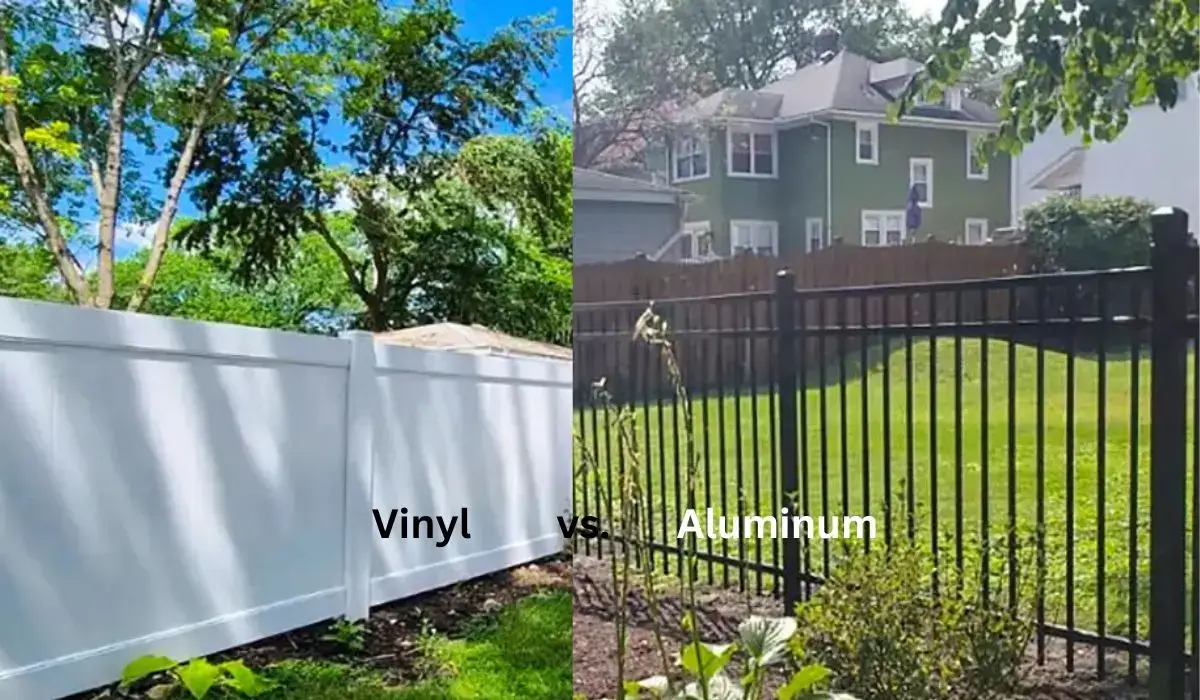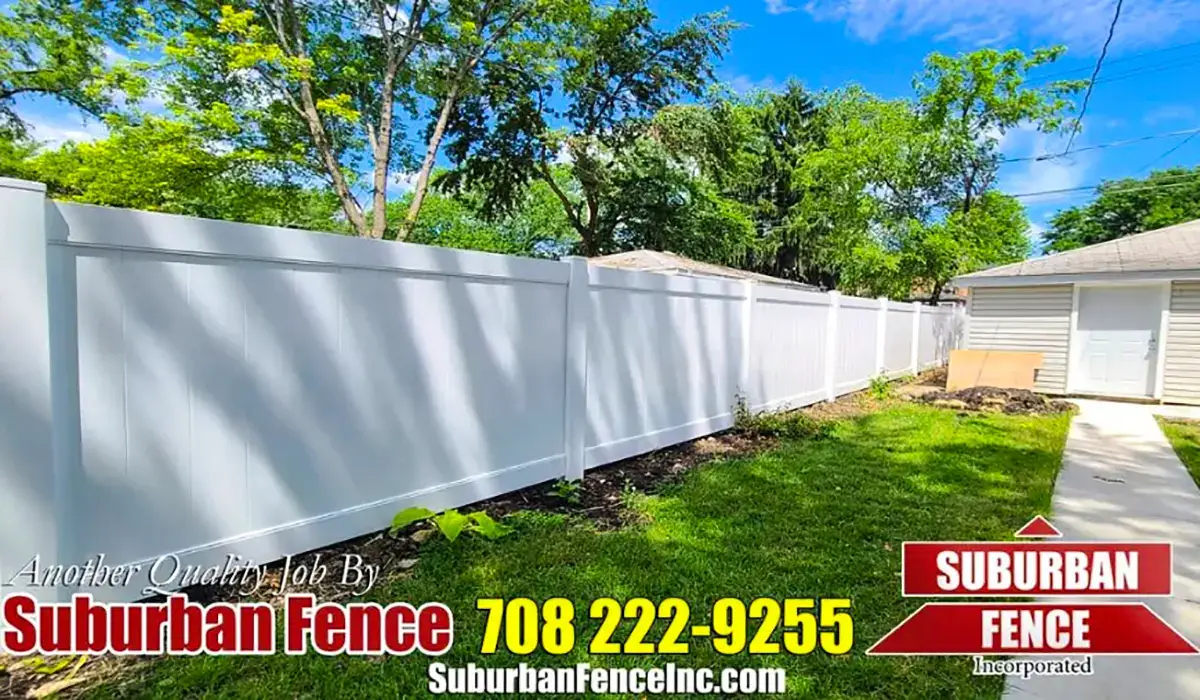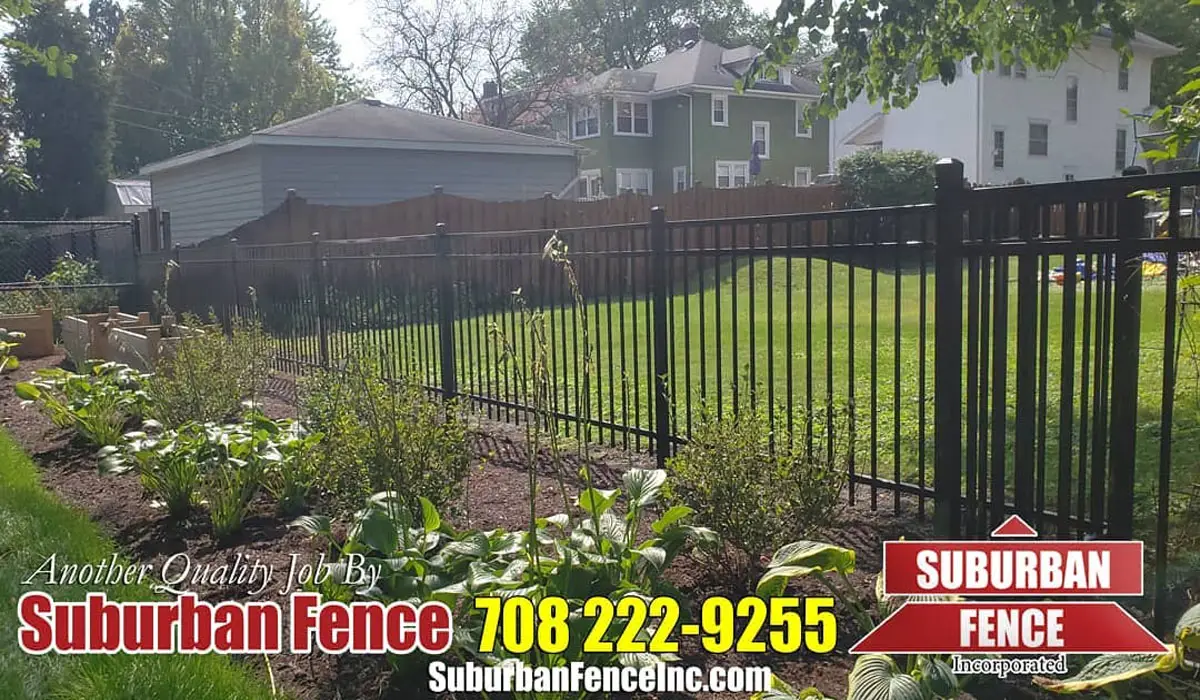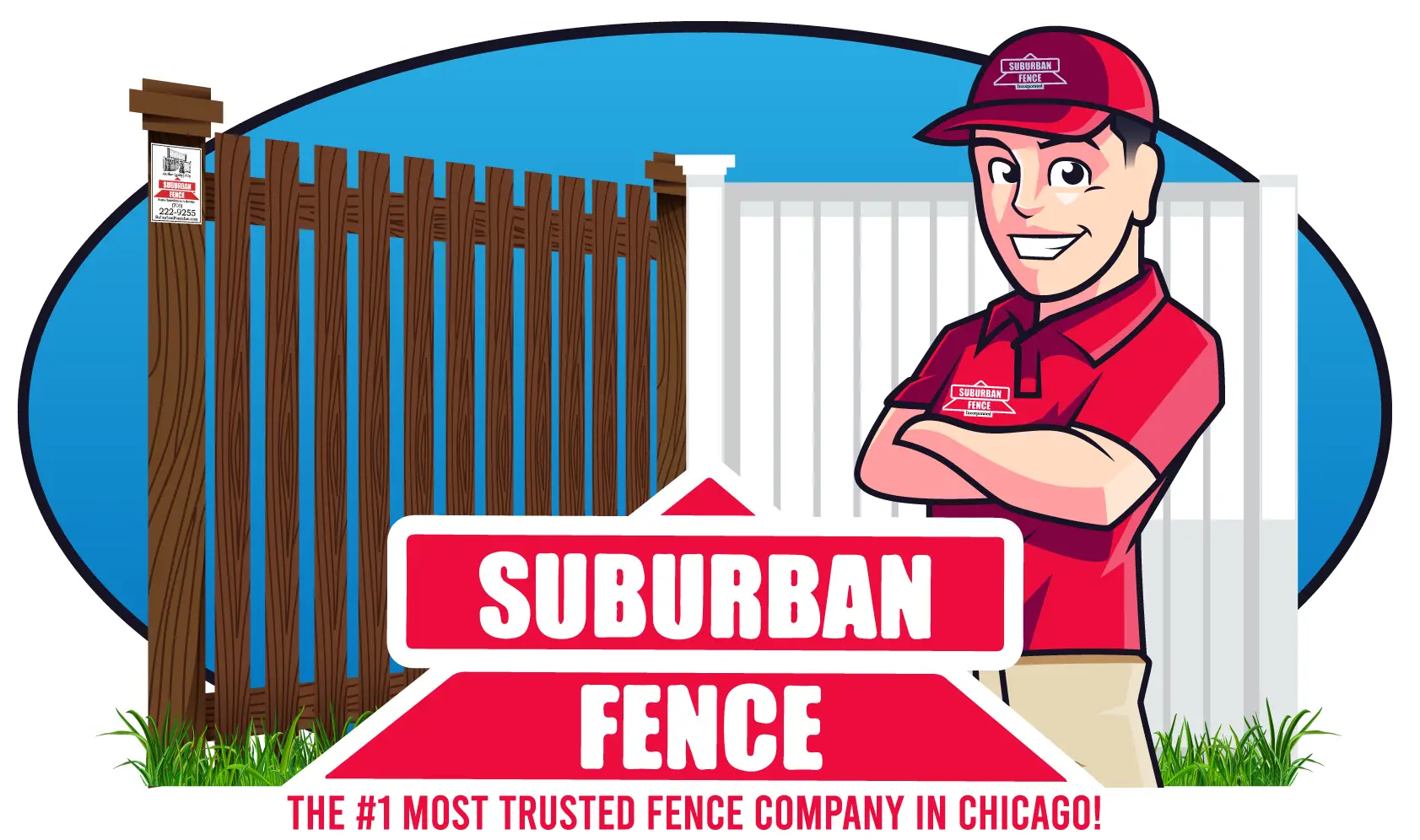
Vinyl or Aluminum Fencing: Which Is Better for Your Chicago Home?
Comparing Vinyl and Aluminum Fencing: Which Option Fits Your Needs?
Selecting the right fence for your Chicago property is an essential decision that impacts not just the appearance but also the functionality and value of your home. For over 40 years, Suburban Fence has been the trusted provider of high-quality fencing solutions in the area, offering expert advice and premium installations. Vinyl and aluminum fences are among the most popular choices for their durability, low maintenance, and design versatility.
This guide examines the key features, applications, and technical benefits of vinyl and aluminum fencing, helping you make an informed choice that fits your property’s needs and your budget.

Vinyl Fencing: Durable, Low-Maintenance, and Versatile
Vinyl fencing is a modern, long-lasting option known for its ability to withstand harsh weather conditions with minimal upkeep.
Key Features of Vinyl Fencing
- Superior Durability
Vinyl is made from polyvinyl chloride (PVC), a material known for its high tensile strength. This makes it resistant to cracking, fading, and weathering, even in Chicago’s fluctuating temperatures.
- UV Resistance
Most vinyl fences are manufactured with UV inhibitors that prevent discoloration from prolonged sun exposure. This ensures the fence maintains its vibrant color for years without requiring repainting.
- Safety and Sustainability
Vinyl fences are non-toxic and free of splinters, making them safe for children and pets. Additionally, many vinyl fencing products are recyclable, offering an eco-friendly alternative to traditional wood fencing.
Applications of Vinyl Fencing
- Privacy Solutions:
Solid panels effectively block visibility and noise, making vinyl ideal for creating a secluded backyard retreat.
- Decorative Enhancements:
Available in various textures and patterns, vinyl fencing can mimic woodgrain or other materials for a sophisticated aesthetic.
Installation Insights
Vinyl fencing systems often use an interlocking mechanism, making them quicker and easier to install compared to other materials. Professionals ensure secure anchoring to withstand wind speeds up to 100 mph.

Aluminum Fencing: Lightweight, Strong, and Elegant
Aluminum fencing provides a blend of aesthetic appeal and robust performance, making it a top choice for homeowners looking to secure their property while maintaining an open, sophisticated look. For aluminum fence installation in Chicago, this option offers durability and style that complements a variety of home designs.
Technical Benefits of Aluminum Fencing
- Corrosion Resistance
Aluminum is naturally resistant to rust, thanks to its oxide layer. Modern powder coatings further enhance this property, ensuring the fence remains rust-free even in Chicago’s wet and snowy winters.
- Lightweight Yet Strong
Aluminum is significantly lighter than steel, reducing stress on fence posts and facilitating easier installation. Despite its light weight, it boasts excellent strength, particularly in its extruded form, which is common for fencing.
- Maintenance-Free
Unlike iron or steel, aluminum doesn’t require frequent repainting or sealing. Occasionally cleaning with water is enough to keep it looking pristine.
Applications of Aluminum Fencing
- Pool Fencing:
Aluminum fences are a popular choice for pool areas due to their compliance with safety codes and unobstructed design, which enhances visibility.
- Ornamental Uses:
Aluminum’s versatility allows for custom designs, such as scrollwork or decorative finials, to elevate the property’s aesthetic.
Technical Note on Strength and Security
Modern aluminum fences are made using thicker gauge materials for enhanced durability. Some models also include concealed fasteners for added security and a cleaner finish.
Key Considerations for Choosing Vinyl and Aluminum Fencing
Choosing between vinyl and aluminum fencing involves weighing several important factors. Here’s a closer look at key considerations to help you make the best decision for your home.
1. Weather Resistance and Climate Performance
Chicago’s climate is characterized by cold winters, hot summers, and frequent precipitation. The durability of your fencing material under these conditions is crucial:
Vinyl: Vinyl is impervious to moisture, so it won’t swell, crack, or rot even during freezing temperatures or heavy rain. Its UV inhibitors prevent fading, ensuring a long-lasting appearance. Vinyl fences can resist wind speeds up to 100 mph when properly installed, making them suitable for Chicago’s gusty weather.
Aluminum: Aluminum fencing is naturally resistant to rust and corrosion, even without additional coatings. It performs well in humid or snowy environments, retaining its structural integrity despite exposure to moisture. Powder-coated finishes further enhance its durability, providing up to 25 years of rust resistance.
💡 Technical Tip: If your property is in an area prone to flooding, aluminum’s lightweight design makes it easier to adjust and repair compared to vinyl.
2. Privacy vs. Visibility
The level of privacy and visibility your fence provides is another essential factor:
Vinyl: Vinyl fences are the go-to choice for complete privacy. Solid panels can block visibility and reduce noise, making them ideal for backyards and family areas. These panels also prevent intruders or stray animals from entering.
Aluminum: Aluminum fences are often used where visibility is a priority. They provide secure boundaries while allowing light and air to pass through. This makes aluminum a preferred choice for pool fencing or showcasing landscaped gardens.
Fact Check: According to property design experts, homeowners seeking to block noise should opt for vinyl, as its solid structure reduces sound transmission by up to 70%.
3. Aesthetic Compatibility
Matching your fence to the design of your home and property enhances curb appeal:
Vinyl: With options that mimic woodgrain or come in various colors and textures, vinyl fencing fits seamlessly with modern, rustic, or traditional architectural styles.
Aluminum: Aluminum’s sleek, minimalist design pairs well with contemporary and classic homes. Ornamental designs, such as decorative posts or finials, add a touch of sophistication.
💡 Consider This: Homes with a more ornate exterior may benefit from custom aluminum fence chicago to complement intricate detailing. For modern homes, smooth vinyl panels with bold colors offer a striking contrast.
4. Installation Costs and Long-Term Maintenance
While the upfront cost of a fence is important, ongoing maintenance and lifespan determine its true value:
Vinyl: Typically, vinyl fences are more expensive to install due to the material’s thickness and customization options. However, they require virtually no maintenance over their lifetime. With minimal upkeep, a well-installed vinyl fence can last up to 30 years.
Aluminum: Aluminum fences generally have a lower initial cost than vinyl. They may require occasional touch-ups to powder coatings for aesthetic purposes, but overall maintenance is limited. The average lifespan of an aluminum fence is 20–25 years, though this can extend with high-quality finishes.
💡 Data Insight: Studies show that vinyl fencing chicago costs $15–$40 per linear foot, while aluminum averages $22–$72 per linear foot. These costs vary depending on design complexity and property size.
5. Environmental Impact
Eco-conscious homeowners should consider the sustainability of fencing materials:
Vinyl: Many vinyl fences are recyclable, reducing waste. However, the production process involves PVC, which is derived from fossil fuels, raising some environmental concerns. Look for suppliers that use recycled materials in their manufacturing.
Aluminum: Aluminum is 100% recyclable and often made from recycled metal. This makes it one of the most sustainable fencing materials available.
💡 Quick Tip: When choosing aluminum fencing, ask about its recycled content percentage to ensure you’re making an environmentally friendly choice.
6. Security Features
For homes requiring added security, both materials offer distinct benefits:
Vinyl: Solid panels create a robust barrier that deters trespassers and shields your property from view. For added security, vinyl gates can include reinforced steel cores and high-quality locks.
Aluminum: Aluminum fences are harder to climb due to their narrow rails and often come with security enhancements like spear-topped pickets or lockable gates.
💡 Technical Suggestion: To maximize security, ensure posts are set in concrete foundations at least 36 inches deep. This prevents shifting during freeze-thaw cycles common in Chicago.
Summary Table: Key Comparisons
Factor | Vinyl | Aluminum |
Lifespan | Up to 30 years | 20–25 years |
Cost | Higher upfront, low upkeep | Lower upfront, occasional maintenance |
Climate Suitability | Excellent for moisture and wind | Resistant to rust and corrosion |
Privacy | Full privacy | Partial visibility |
Eco-Friendliness | Recyclable, non-toxic | Fully recyclable |
By evaluating these key factors, you can choose the material that aligns best with your priorities, ensuring a fence that meets both functional and aesthetic needs. A properly selected and installed fence enhances property value while providing lasting peace of mind.
Enhancing Your Fence with Accessories
Accessories not only improve the functionality of your fence but also add a touch of personalization to suit your property’s unique needs.
Gates and Entry Systems
Choose matching gates with automated or manual locking systems for added convenience and security. Vinyl gates can be made with reinforced metal frames to increase durability, while aluminum gates offer smooth operation with custom decorative elements.
Lighting Features
Integrating solar-powered or low-voltage LED lighting along your fence can increase safety and accentuate the property at night.
Coatings and Customizations
- Vinyl: Add textures or choose vibrant colors to match your home’s design.
- Aluminum: Opt for powder-coated finishes that resist scratching and come in a variety of colors, including bronze, white, and black.
For inspiration, check out the gallery of completed projects showcasing various styles and designs.
Making the Right Choice Between Vinyl and Aluminum Fencing
Vinyl and aluminum fencing each offer distinct advantages tailored to different needs. Vinyl provides excellent privacy and durability, ideal for family spaces and secure perimeters. Aluminum, with its sleek design and resilience against rust, is a practical choice for open, elegant boundaries. Evaluating your priorities—be it privacy, aesthetics, or maintenance—will help you select the best material for your Chicago home.
Suburban Fence has been a trusted name in the fencing industry for over 40 years, delivering high-quality installations and expert guidance. Whether you’re interested in vinyl fencing services or aluminum fence solutions, our team is here to help. Visit our FAQs for more details, check out our gallery, or learn about financing options. Contact us for a FREE quote or call (708) 222-9255 to start your fencing project today.
